
Commentaries | Nov 30,2019
Bank of Abyssinia, one of the three most profitable banks in the country, registered moderate growth during the past fiscal year, netting 853.7 million Br in profit. The Bank's profit recorded 10pc growth, lower than the 48pc rate marked the previous year.
The earnings per share (EPS) of the Bank drooped slightly to 7.2 Br from 7.23 Br a share, which has a par value of 25 Br. The reduction was likely due to the injection of fresh capital. The Bank has increased its paid-up capital by 12pc to 3.2 billion Br.
Meseret Taye, the board chairperson of the 25-year-old Bank, states that the Bank achieved commendable growth despite the challenges.
"Continued security concerns, the persistent forex crunch, and the rising price levels on top of negative effects of the pandemic produced a notable business slowdown," said Meseret.
The main factor that contributed to increased profit after tax was an improvement in revenues from financial intermediation. Abyssinia's interest on loan advances and National Bank of Ethiopia (NBE) bills, which phased out recently, soared by 38pc to 4.9 billion Br. Increased lending activities drove this growth. During the year, the firm disbursed loans and advances of 36.8 billion Br, an increase of 57pc.
The growth in loans and advances is awe-inspiring, according to Abdulmenan Mohammed, a financial analyst.
Non-financial intermediation income of Abyssinia showed a mixed performance. Income from service charges and commissions increased by 51pc to 916 million Br. However, income from foreign dealings plummeted to a loss of 175.3 million Br from prior revenues of 81 million Br.
“The culprit for such a massive loss needs a thorough investigation, and rectifying measures should be taken,” Abdulmenan said.
Desalegn Yizengaw, vice president of the Bank in charge of financial management, says that the constant depreciation of the Birr against a basket of major foreign currencies has caused the loss.
"The year saw as high as 15pc depreciation of the Birr," said Desalegn, "this is higher than the growth rate of the previous years."
The annual pace of nominal depreciation of the Birr against the basket of major foreign currencies has been gradual and quite stable at about five percent in recent years. However, over the past year, the local currency has been continually devaluing by approximately 0.3pc every week.
A huge expansion followed the increase in revenues with expenses. Interest on savings increased by 20pc to 1.8 billion Br. The increase must have been due to a surge in deposits, which reached 47.6 billion Br, an increase of 48pc, mobilised from its 2.6 million customers. The loan-to-deposit ratio at Abyssinia increased to 77pc from 72.9pc.
The loan-to-deposit ratio of the Bank is incredible, according to the expert, who added that the management should be applauded for it.
"However, the high level of the ratio is somewhat concerning as it can cause liquidity problems as happened at the end of 2019 and early 2020," he said.
Last year, the National Bank of Ethiopia offered 14.5 billion Br in loans to the cash-strapped commercial banks at a competitive bidding interest rate. The banks have been grappling with a liquidity strain that has not been seen in the economy for over two decades.
"The management should watch the liquidity level," said the expert.
Liquidity issues are not determined by a single bank, according to Desalegn, who mentions inter-banking transactions through cheque and payment clearances.
"There was an industry-wide liquidity crisis in the country last year," he said, "and it was reflected at every bank."
Normally the period from October to February is known for the harvest season where there is a shortage of cash at the banks, according to Desalegn.
Salaries and benefits paid by Abyssinia soared by 86pc to 1.8 billion Br, and general administration costs went up by 30pc to 814 million Br.
The massive surge in salaries and benefits is concerning unless it is related to significant salary adjustments and business expansion, according to Abdulmenan.
Desalegn confirms the expert's comment.
"We made huge investments in technology, which will have an outcome in the coming three years," said Desalegn.
Last year, the Bank approved a new restructuring that expanded the management base and offered salary raises and benefit packages, according to Desalegn.
"We pay 20pc to 30pc higher than the industry," he said.
During the year, the Bank has opened 166 new branches and pushed the total number of branches under its network to 503. Its employee count has also reached 6,700.
The total assets of the Bank expanded significantly, increasing by 45pc to 57 billion Br. Abyssinia's investment in NBE bonds decreased by seven percent to 7.1 billion Br due to phasing out of the 27pc directive. The bond investment accounts for 12pc of the total assets and 15pc of the total deposits of Abyssinia.
Further reductions of these proportions are expected in the years to come, according to Abdulmenan.
Liquidity ratios indicate that Abyssinia's liquidity level increased in terms of value but declined in relative terms. Cash and bank balances increased by 42pc to 6.4 billion Br. The ratio of liquid assets to total assets slightly decreased to 11pc from 11.4pc, and the ratio of liquid assets to total deposits also declined to 13pc from 13.9pc.
The Bank should take extra caution against a further reduction in the liquidity level, according to Abdulmenan.
Abyssinia had capital and non-distributable reserves including revaluation reserves of 5.3 billion Br and a capital adequacy ratio (CAR) of 14.3pc. Even though the CAR of the Bank is well above the regulatory minimum, it is far lower than the industry average of 18.5pc in the last fiscal year.
"The management needs to consider increasing its CAR for a precautionary reason," recommends the expert.
The issue of CAR will be addressed at the end of the current fiscal year, according to Desalegn, who says that the Bank will work on matching the growth rate of the paid-up capital with loans and deposits.
"The subscribed four billion Birr capital will be fully paid this fiscal year," he said. "The general assembly will discuss and vote on further capital growth."
Girma Alemu, one of the 2,400 shareholders of the Bank, was blithe about last year's performance.
Girma joined the Bank a quarter of a century ago as a founder by investing 25,000 Br. Currently, the value of his shares has reached one million Birr after he bought more shares three years ago.
"I only witnessed disagreement and controversy at the Bank during its establishment while picking a name for the Bank," he said. "After that, I heard no disagreement among shareholders, unlike other companies and financial institutions."
Girma says that some of the founders opposed the name Abyssinia during its establishment. But Abyssinia, the former name of Ethiopia, was approved by the majority.
"The Bank proved it's a bank of all," he remarked. "It's owned by shareholders from all parts of the country."
PUBLISHED ON
Nov 29,2020 [ VOL
21 , NO
1074]

Commentaries | Nov 30,2019

Radar | Aug 18,2024

Fortune News | Mar 23,2024
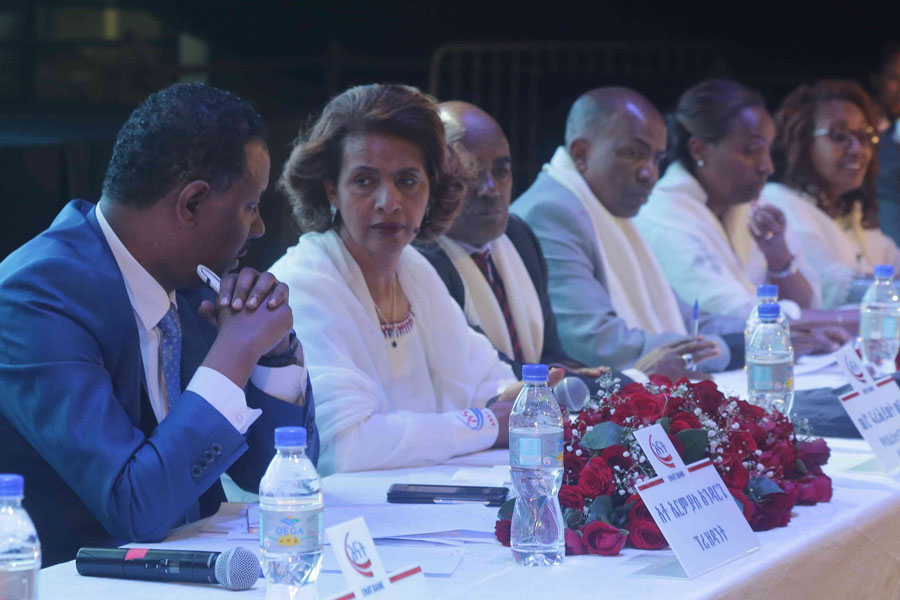
Fortune News | Apr 10,2023
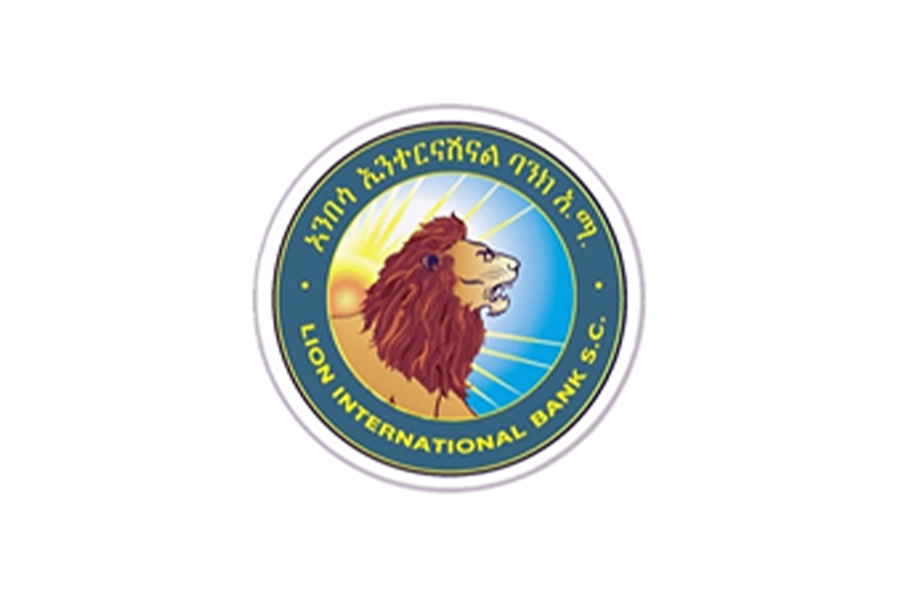
Radar | Sep 22,2024
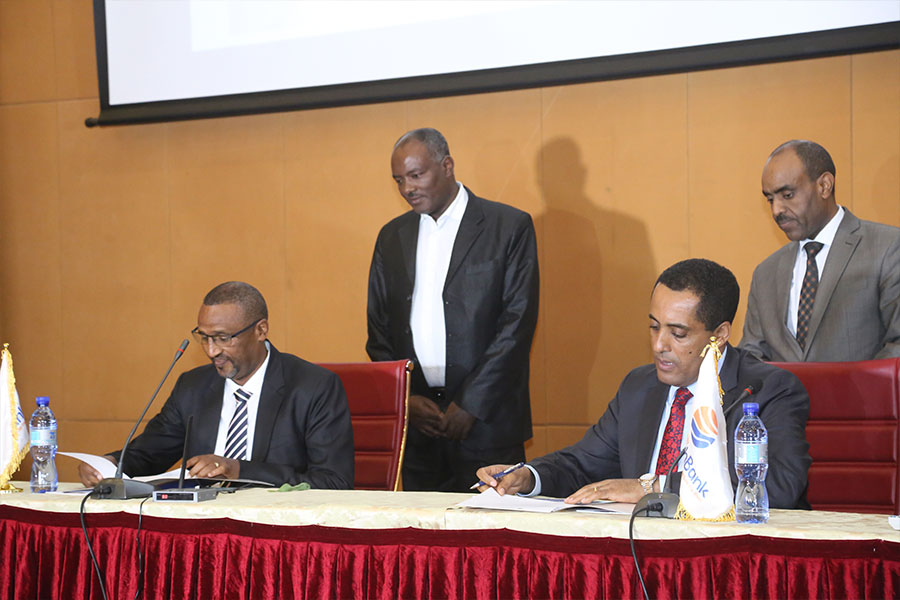
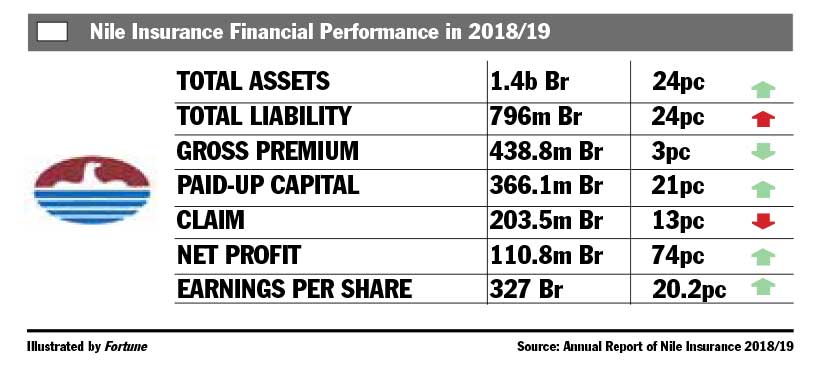
Fortune News | Dec 21,2019

Fortune News | Jan 22,2022
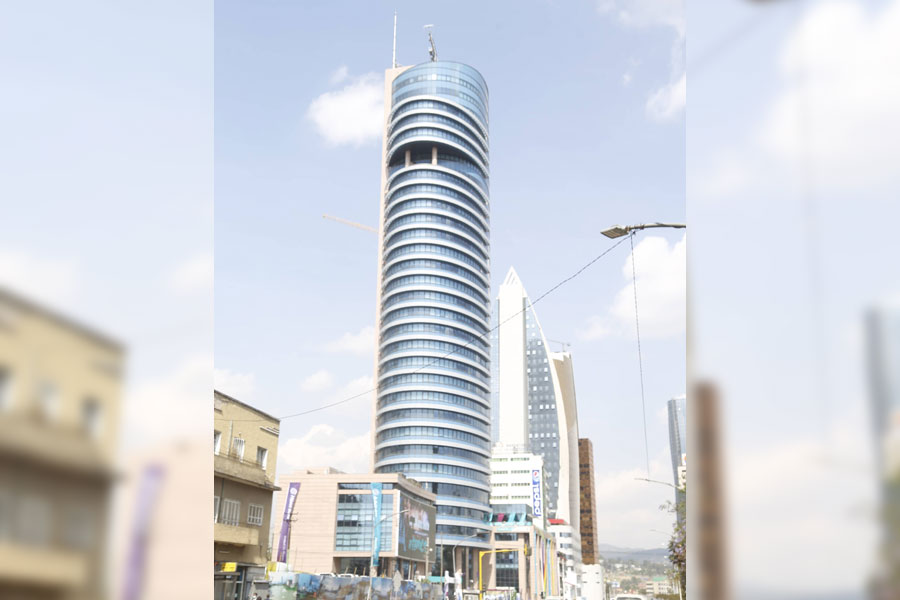
Agenda | Jan 15,2022

Commentaries | Apr 22,2022

Dec 22 , 2024 . By TIZITA SHEWAFERAW
Charged with transforming colossal state-owned enterprises into modern and competitiv...

Aug 18 , 2024 . By AKSAH ITALO
Although predictable Yonas Zerihun's job in the ride-hailing service is not immune to...

Jul 28 , 2024 . By TIZITA SHEWAFERAW
Unhabitual, perhaps too many, Samuel Gebreyohannes, 38, used to occasionally enjoy a couple of beers at breakfast. However, he recently swit...

Jul 13 , 2024 . By AKSAH ITALO
Investors who rely on tractors, trucks, and field vehicles for commuting, transporting commodities, and f...

Jul 12 , 2025
Political leaders and their policy advisors often promise great leaps forward, yet th...

Jul 5 , 2025
Six years ago, Ethiopia was the darling of international liberal commentators. A year...

Jun 28 , 2025
Meseret Damtie, the assertive auditor general, has never been shy about naming names...

Jun 21 , 2025
A well-worn adage says, “Budget is not destiny, but it is direction.” Examining t...